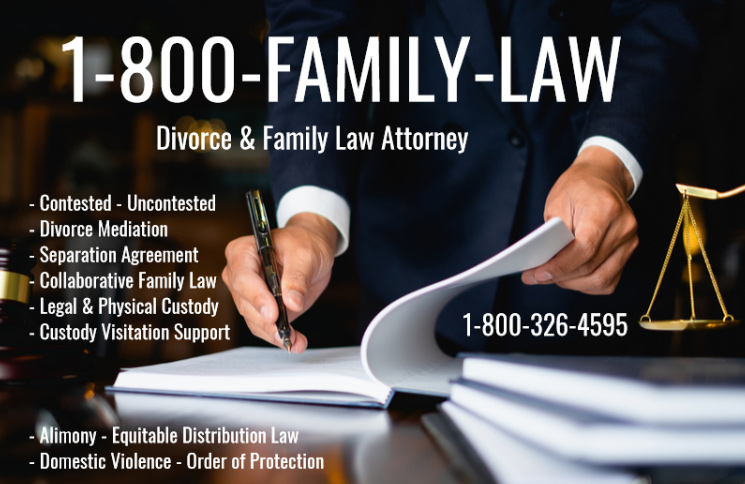Contested vs. Uncontested Divorce
When it comes to divorce, there are essentially two different types. These are contested and uncontested. As their names suggest, a contested divorce is one where the spouses cannot agree about one or more aspects of the divorce, whereas an uncontested divorce is one where the two parties can reach an agreement on all issues.
Uncontested divorces can save time and money, but that doesn’t mean it’s the right route for all couples getting a divorce. Before making any decision, we recommend speaking with a skilled divorce attorney in your state who can help you decide what is right for your individual situation. At 1-800-Family-Law, we help clients all over the country understand the risks of a contested versus an uncontested divorce. Let us help with your divorce and any other family law needs.
Uncontested Divorce
In an uncontested divorce, both sides literally agree on every aspect of the divorce. Sometimes this includes issues that the couple didn’t realize would be possible, like spousal support. An uncontested divorce is more than just both spouses agreeing that the divorce should happen. Your attorney will go over all the aspects of a divorce to determine how far apart you are. Issues can include:
● Distribution of assets
● Child custody
● Child support
● Spousal support or alimony
Couples proceeding with an uncontested divorce would prepare their own settlement agreement, usually outside of court. Uncontested divorces typically involve less time and legal expenses, but they aren’t always the best option.
An uncontested divorce is not recommended when one spouse is controlling or trying to intimidate their spouse into signing all their rights away. The settlement agreement should be fair. One spouse walking away with all the assets and leaving the other spouse with only debt, or no assistance they would otherwise be entitled to under state law, is unfair. Before signing a settlement agreement in an uncontested divorce, you should have a family law attorney review the terms.
Contested Divorces
A contested divorce means you can have disputes on any or all aspects of the divorce, right down to whether you should divorce in the first place. Some states that allow for at-fault divorces are where you often see the biggest disputes. When evaluating contested vs uncontested divorce, the most common areas of dispute include spousal support and distribution of assets.
Many states follow the legal theory of equitable distribution, which means the court will divide marital property in an equitable and fair manner. This is different than community property states where the court separates things 50/50. In equitable distribution states, the courts won’t allow one spouse to take all the assets and leave the other spouse with only the debts.
Another reason why a contested divorce may be a better option is when you suspect your spouse is hiding assets or tried to liquidate them in order to avoid paying you a fair share. In addition, there may be accounts and assets that the court deems marital property while your ex assumes they are separate and cuts you out of your entitled share.
Contested vs Uncontested Divorce: Choosing What’s Best for You
If you are preparing to file for divorce or have been served with divorce papers, contact our office at 1-800-Family-Law as soon as possible and let us refer you to a skilled divorce attorney in your area who can answer all your questions and ensure your rights are protected.
